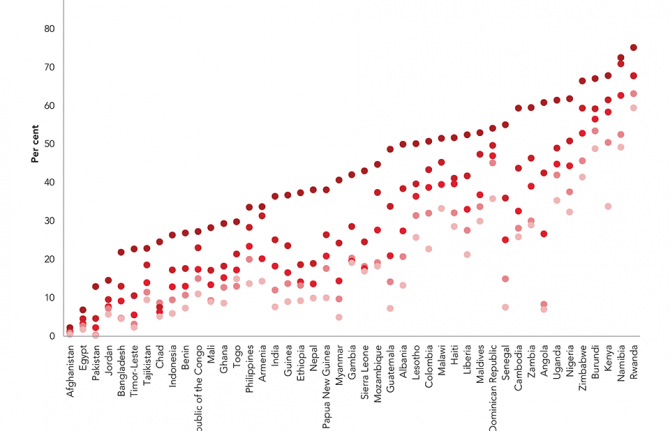

Update
HIV knowledge greater among women with higher incomes
06 April 2020
06 April 2020 06 April 2020Universal access to quality comprehensive sexuality education is crucial, especially for young people. It enables young people to make informed decisions and be empowered as they explore their sexuality and relationships. It helps them acquire the skills and values of mutual respect, tolerance, gender equality and non-violence, and it equips them with the knowledge they need to protect their health and well-being more effectively.
Levels of HIV knowledge vary across countries, depending on the national and local context, and they often are associated with social and economic inequities. In many countries, levels of comprehensive and correct knowledge of HIV among adolescent girls and women are low, but they tend to be lowest among those who live in poverty and those with lower levels of education. They also are lower among rural women than those in urban areas.



